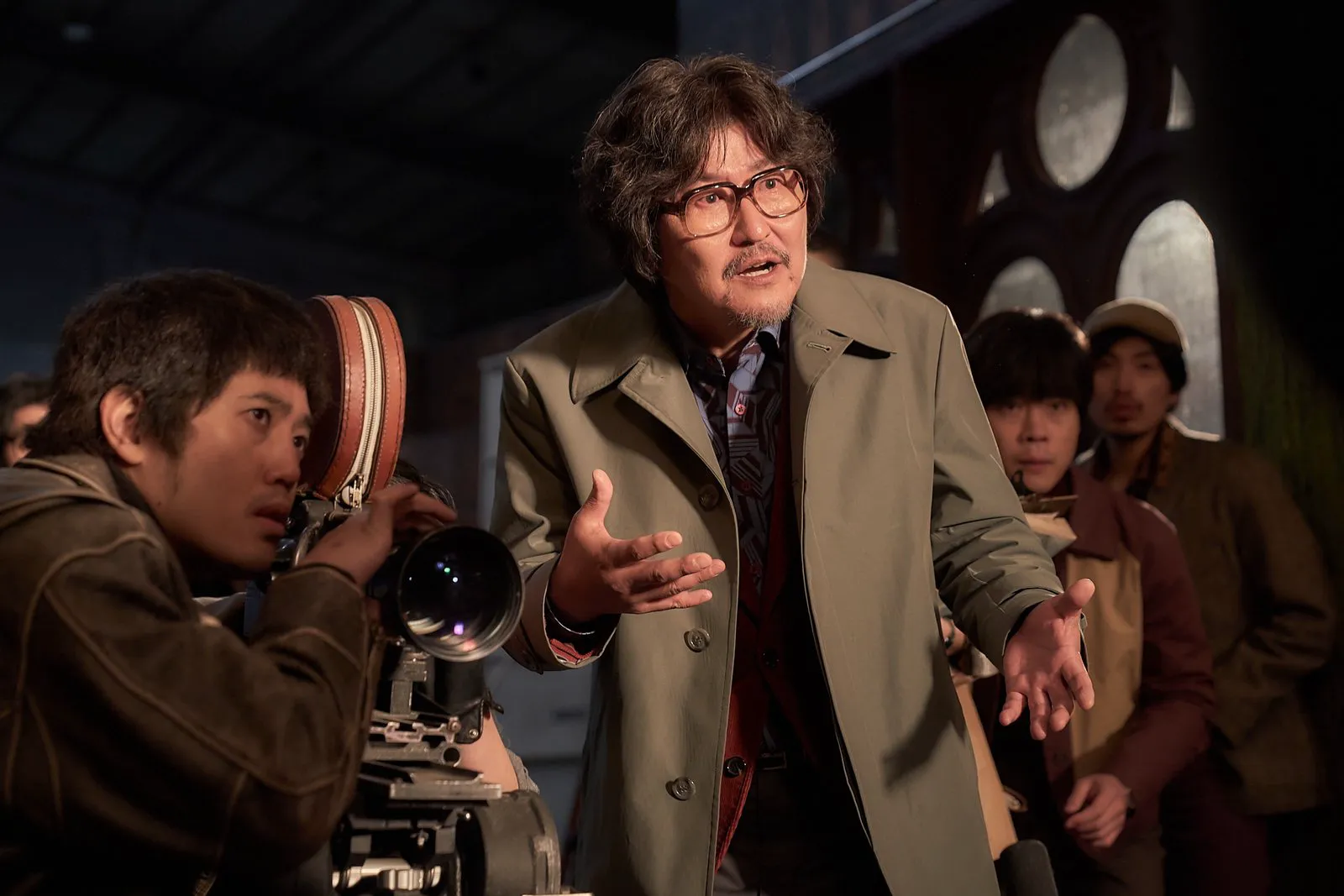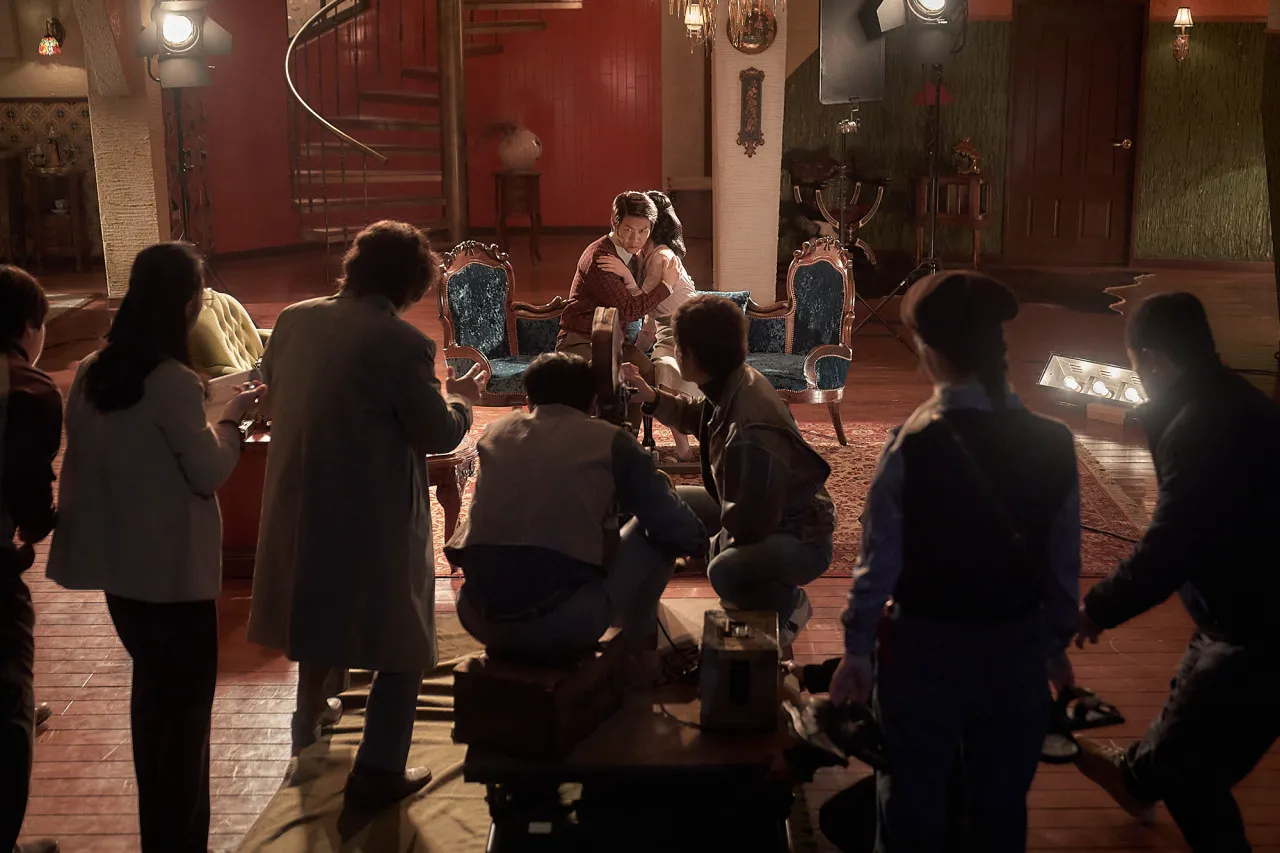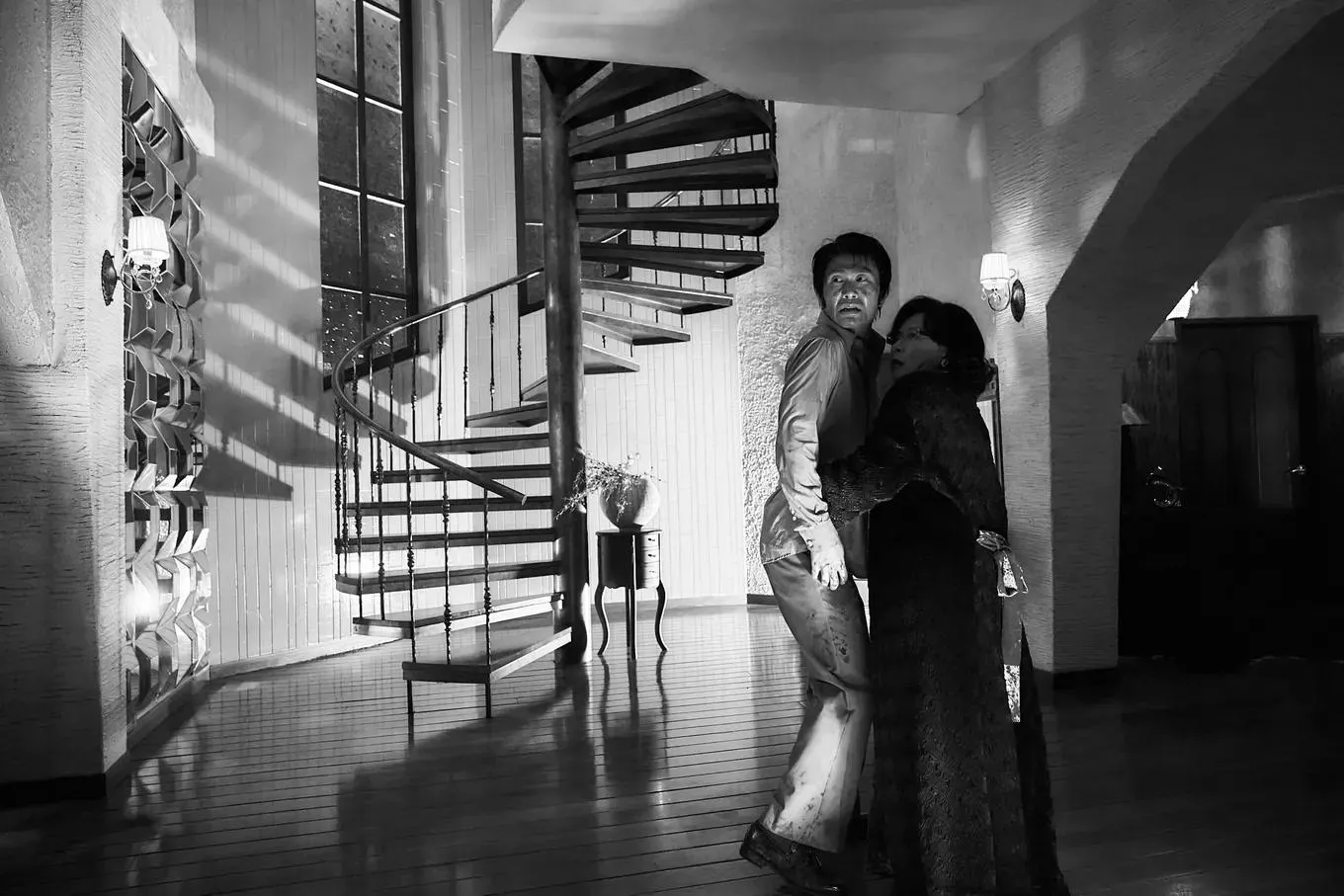Cobweb: A Dive into Korean Cinema’s Past
The early 1970s. Director Kim Ki-yeol (Song Kang-ho) suffers from insomnia, haunted by unfinished scenes from his latest film, “Cobweb.” He’s convinced that a few days of reshoots, especially the final scene, could transform the mediocre film into a masterpiece. However, the studio director (Jang Young-nam) believes the film is complete and that perfection is the enemy of good. She’s certain the censorship committee won’t approve the new script. Moreover, the lead actors of “Cobweb” (Oh Jung-se and Krystal Jung) are already committed to other projects. Director Kim finds an ally in the young producer Shin Mi-do (Jeon Yeo-bin). They resort to desperate measures, locking the actors in the studio and even drugging a censor (Jang Nam-yeol). The filming proceeds in secrecy.

Song Kang Ho as Kim in a still from “Cobweb”
“Cobweb” premiered in the non-competitive section of this year’s Cannes Film Festival. Director Kim Jee-woon, while overshadowed by Park Chan-wook and Bong Joon-ho in recent years, remains a significant figure in Korean cinema. He has worked both in Korea and in the United States, where he directed the action film “The Last Stand” starring Arnold Schwarzenegger. His resume also includes the sci-fi series “Dr. Brain” for Apple TV+. Back in Korea, he has explored various genres, including the bloody thriller “I Saw the Devil,” the wild western “The Good, the Bad, the Weird,” the inventive action-noir “A Bittersweet Life,” and the stylish historical drama “The Age of Shadows.” However, his best works were arguably made in the 2000s and early 2010s.
The Genesis of “Cobweb”
Kim Jee-woon admits that the idea for the film came during the pandemic, when he began reflecting on the history of Korean cinema. Today, films from South Korea are successful worldwide and participate in prestigious festivals. The first wave of Korean cinema occurred in the 1960s, and those films influenced modern classics. However, Korean cinema from the 1960s only reached Europe and the United States much later, partly due to the popularity of works by Park Chan-wook, Bong Joon-ho, Kim Jee-woon, and others. The director of “Cobweb” recalled that in the 1970s, film production slowed dramatically, censorship flourished, and creating masterpieces became much more difficult. Kim tried to imagine himself in the shoes of the creators of that time, which led to the creation of the film’s protagonist.

Oh Jung-se as Kang Ho-se in a still from “Cobweb”
Ambition and Madness
Kim Ki-yeol is a struggling director living in the shadow of his deceased mentor, Shin (Jung Woo-sung). His only successful film was his debut, and rumors suggest he stole the script from his teacher. Since then, it’s been a string of failures. Kim is obsessed with proving to the press and the audience that he is a talented author. One of the central themes of the film is the ambition of creators, often bordering on madness. It’s hard to imagine that reshooting a few scenes could fundamentally change a film, but Kim firmly believes in success, for which he is willing to torment actors, deceive studio producers, and even risk his life by filming a large-scale fire scene.
A Glimpse into the Past
“Cobweb” offers a fascinating glimpse into the history of Korean cinema. Modern viewers likely don’t realize the challenges of the post-war industry, where filmmakers had to navigate censorship, please producers, and maintain their reputation among colleagues. Parallels can be drawn between Korean and Soviet cinema of the 1970s, which were also full of political and ethical restrictions.
Kim Jee-woon pays homage to his predecessors. The protagonist shares traits with director Kim Ki-young, and the film being reshot thematically resembles “The Housemaid” from 1960. One of the characters is named Madam Oh, a nod to the drama “Madam O” by Japanese director Seiichi Fukada. “Cobweb” likely contains many other Easter eggs, but recognizing them all requires extensive knowledge of Asian cinema from half a century ago.

Still from “Cobweb”
A Web of Troubles
Director Song Kang-ho faces a multitude of problems. In addition to issues with producers and censors, it turns out that the lead actors were having an affair, and now their relationship is strained. Kim Jee-woon juggles several interesting storylines, but each one is predictable and lacks dynamism. The director tries to compensate for the lack of events by interweaving the production process with scenes from the film being shot. The struggling director, having gone through fire, water, and copper pipes, deserves a masterpiece.
Genre Blending
Korean cinema is known for its poly-genre nature and rapid transitions from thriller to comedy, from action to melodrama. “Cobweb” contains numerous scenes of the film within the film. A black production comedy unfolds before the audience, while an erotic psychological thriller is being filmed on set. To distinguish between the two, Kim shows the main action in color and the reshoot scenes in monochrome. However, the genres don’t blend seamlessly, and it’s difficult to follow the development of fragmented events from the thriller being created.
Final Thoughts
Kim Jee-woon proves that he hasn’t lost his directorial skills, but unfortunately, a dull plot hides behind the artistic flourishes. The chaos on set isn’t crazy enough to truly captivate. And the problems of the on-screen director are familiar. The author tries to present filming as an unpredictable attraction, but the anecdotes are only moderately interesting, nothing more. “Cobweb” doesn’t deserve harsh criticism, but there’s nothing to praise it for either.